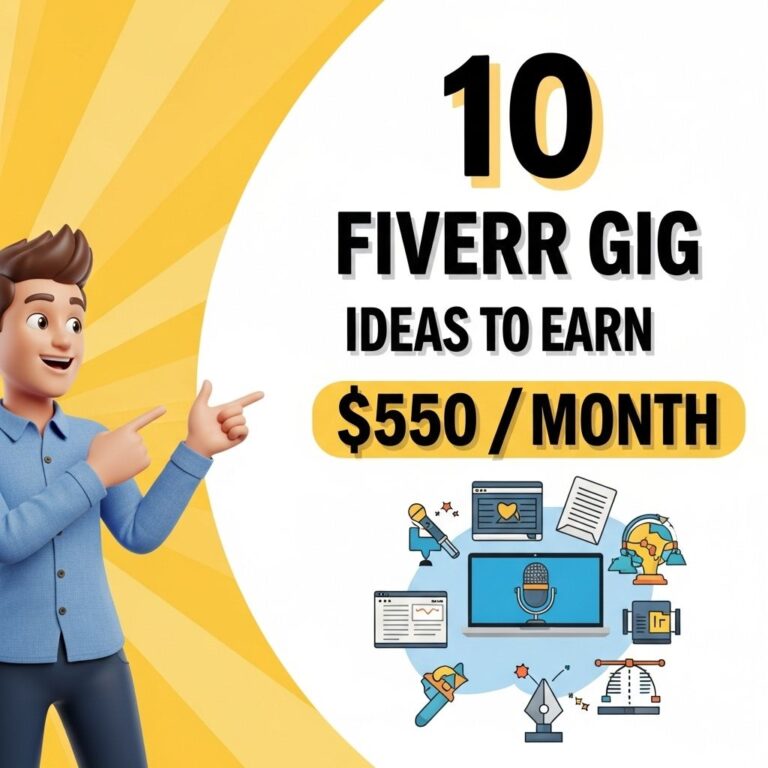In the ever-evolving landscape of technology, the advent of artificial intelligence (AI) has opened up a plethora of opportunities for freelancers looking to enhance their skills and boost their income. With the right AI tools in your arsenal, you can streamline your processes, improve your output, and ultimately reach the financial target of earning $2,500 a month. This article delves into the various strategies and AI tools freelancers can leverage to achieve this goal.
Freelancing has evolved with the rise of AI tools, allowing creatives to enhance their productivity and earn a steady income of $2,500 per month. By leveraging advanced technologies, freelancers can streamline their workflows, from designing to marketing their services. For instance, designers can use resources like how to create bag mockups to showcase their work effectively.
Table of Contents
The Shift Toward AI-Powered Freelancing
As businesses increasingly adopt AI technologies, the demand for freelancers who understand how to utilize these tools effectively has surged. Whether you are a graphic designer, writer, marketer, or developer, integrating AI into your workflow can provide a competitive edge.
Key AI Tools for Freelancers
1. Content Creation Tools
For writers and marketers, AI-driven content creation tools can significantly reduce the time spent on drafting articles, blog posts, and marketing materials. Some notable examples include:
- Jasper: Ideal for generating high-quality copy tailored to specific audiences.
- Copy.ai: Great for crafting product descriptions, social media posts, and more.
- Grammarly: An essential AI tool for proofreading and editing, ensuring your content is polished.
2. Graphic Design Tools
Designers can harness AI to automate repetitive tasks and elevate their creative projects:
- Canva: Offers AI features for image enhancement and template creation.
- Runway ML: Utilizes machine learning for video editing and graphic generation.
- Adobe Sensei: AI embedded in Adobe products to streamline design workflows.
3. Project Management Tools
Efficiency is key in freelancing. Project management tools with AI capabilities can help you stay organized:
- Trello: Integrates AI to suggest task prioritization based on deadlines.
- Asana: Uses AI to automate repetitive tasks and improve team collaboration.
- ClickUp: Offers AI-driven insights for project tracking and reporting.
How to Structure Your Freelance Business
Once you are equipped with the right tools, it’s crucial to have a structured approach to your freelance business. Here’s a step-by-step guide:
1. Define Your Niche
Identify your strengths and interests to carve out a specialized niche. For example:
- Copywriting for tech startups
- Graphic design for e-commerce
- SEO consulting for small businesses
2. Set Clear Goals
Establish clear financial goals and project targets. For instance:
- Earning $2,500 per month translates to approximately $625 per week.
- To achieve this, consider taking on 5 projects at $125 each.
3. Build an Online Presence
Your online portfolio is crucial for attracting clients. Ensure your website includes:
- A professional layout showcasing your work
- Client testimonials
- A clear call-to-action for potential clients to contact you
Marketing Strategies to Attract Clients
With your niche defined and a professional online presence established, it’s time to market your services effectively:
1. Leverage Social Media
Utilize platforms like LinkedIn, Instagram, and Facebook to showcase your work and connect with potential clients. Regularly post content that demonstrates your expertise and engages your target audience.
2. Network within Your Industry
Join online forums, groups, and communities related to your niche. Participate in discussions, share insights, and promote your services subtly. Networking can lead to collaborations and referrals.
3. Use Freelance Platforms
Sign up on platforms such as Upwork, Fiverr, and Freelancer to find clients. Ensure your profile is complete with a compelling description and a portfolio of your best work.
Tips for Maximizing Your Earnings with AI
To reach the financial goal of $2,500 a month, consider these strategies:
1. Offer Packages
Create service packages that provide value to clients while maximizing your time efficiency. For example:
| Service Package | Description | Price |
|---|---|---|
| Basic | One blog post of 500 words | $125 |
| Standard | Three blog posts of 500 words | $350 |
| Premium | Five blog posts of 500 words with SEO optimization | $600 |
2. Upsell Additional Services
Once you have established a relationship with clients, suggest additional services that can benefit them, such as:
- Social media management
- Email marketing campaigns
- Website design and SEO
3. Continuous Learning
Stay updated with the latest trends in AI and your industry. Take online courses, attend webinars, and read relevant literature to keep improving your skill set.
Conclusion
Freelancing with AI tools not only simplifies your workflow but also enhances your capability to earn a substantial income. By strategically integrating these tools, structuring your business effectively, and employing smart marketing tactics, reaching a target of $2,500 a month is entirely achievable. Embrace the future of freelancing and let AI work for you!
FAQ
What are the best AI tools for freelancers?
Some of the best AI tools for freelancers include ChatGPT for content generation, Jasper for marketing copy, Canva for design, and Trello for project management.
How can I earn $2,500 a month as a freelancer using AI?
You can earn $2,500 a month by leveraging AI tools to automate tasks, enhance productivity, and offer high-value services such as content creation, graphic design, and social media management.
Do I need specific skills to freelance with AI tools?
While technical skills can be beneficial, many AI tools are user-friendly and require minimal training. Basic knowledge of your chosen freelance field is essential.
What types of freelance jobs are best suited for AI assistance?
Freelance jobs in content writing, graphic design, digital marketing, and data analysis are particularly well-suited for AI assistance, allowing for increased efficiency and creativity.
Can I freelance part-time while using AI tools?
Absolutely! Many freelancers start part-time while using AI tools to streamline their workflow, allowing them to balance other commitments.
How do I find clients as a freelancer using AI tools?
You can find clients through freelance platforms like Upwork, Fiverr, and Freelancer, as well as by leveraging social media and networking within your industry.









